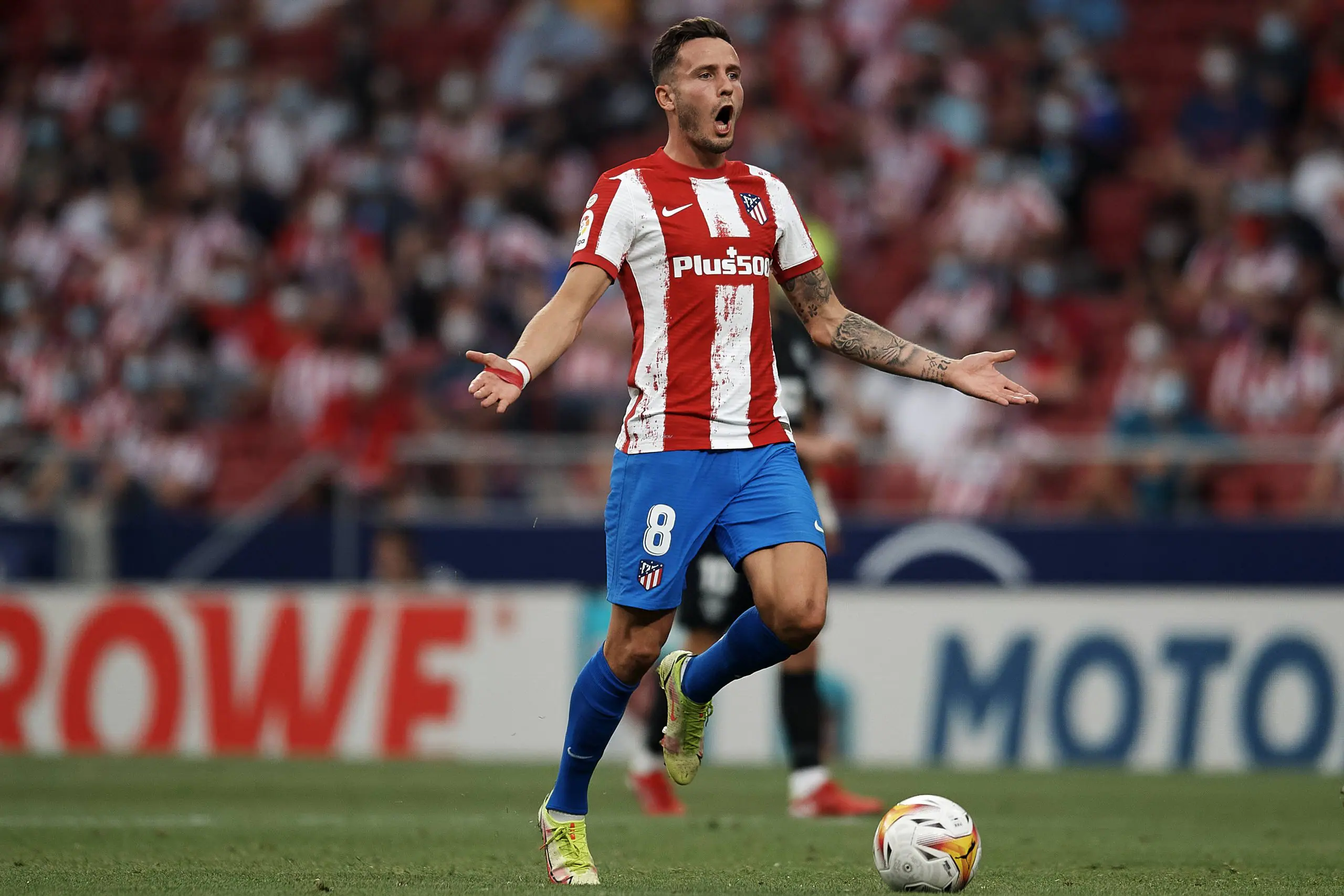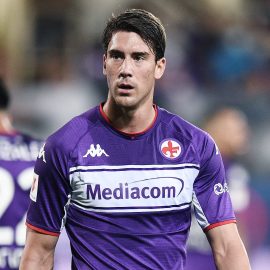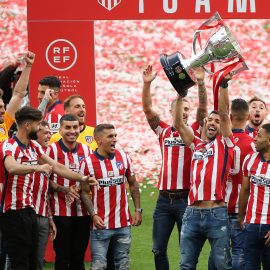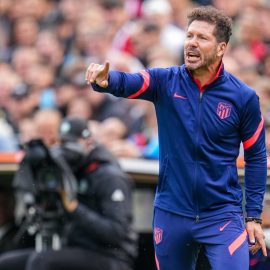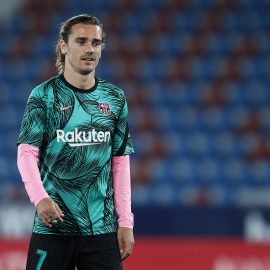As 08/09 ended, Barcelona were roundly recognized as the world’s greatest team. They had dominated in La Liga, claimed the Spanish Cup, and comfortably beaten Manchester United in a much-hyped but ultimately bathetic Champions League Final. Following on from Spain’s triumph at Euro 2008, it led to the Hispanic media celebrating what they called a “golden age” of Spanish (and, it’s worth adding, Catalan) sport.
The pre-season to this campaign didn’t give the pundits any reason to change their view, as the stars of European football flocked to La Liga. Inter Milan were the Champions of Italy, but their Swedish star striker Zlatan Ibrahimovic left to join Barca in an extortionate deal that included a swap for Cameroon forward Samuel Eto’o. From the same city, Kaka left AC to join a Florentino Perez-backed Real Madrid.
Manchester United had just won their third consecutive Premier League title, but they could not keep Cristiano Ronaldo from the clutches of his first love, Real. Liverpool ran United close, but were doomed to go backwards after losing play-maker Xabi Alonso, also to Madrid. They joined the likes of Lionel Messi and David Villa in a Liga that was now a galaxy of stars.
The Premier League had once been the ultimate destination for a top-level footballer, but no longer. High taxes and cold weather had finally taken their toll, and La Liga was back in favour.
Tittle Race
Nowhere are there more stars than at the top two clubs, Real Madrid and Barcelona. The return of Perez at the capital club made sure of that. He promised to bring back the Galacticos, and boy did he, embarking on a spending spree that saw a whole treasure trove of players arrive. New manager Manuel Pellegrini will have been acutely aware that every gift bestowed was in fact a double-edged sword: as each new player took his place in Madrid’s star-studded squad, the pressure on Pellegrini to deliver increased. Winning the league wouldn’t even be enough – Perez craved European glory too.
When Perez came in to power, he found himself with a Madrid side that required thorough rebuilding. Iker Casillas remains a goalkeeper of the highest calibre, but in front of him there were problems. Raul Albiol and Alvaro Arbeloa were immediately recruited to try and tighten the defence – this time round, Perez had to buy the ‘Pavones’ as well as the ‘Zidanes’.
In midfield, Lassana ‘Lass’ Diarra was joined by Alonso to form a pair of Premier League-hardened midfield schemers. It was ahead of that where the overload of talent began. The Dutch pair of Arjen Robben and Wesley Sneijder were sold to make room for an array of attacking players. I have already mentioned Kaka and Ronaldo, with the latter replacing the former as the world’s most expensive footballer within a matter of weeks. The final fee for Ronaldo was a whopping £80m, but for the most part he has looked worth it. In his first La Liga season he has scored 26 goals in 29 games, with the number 9 on his shirt symbolising the final stage of his metamorphosis from tricky winger to predatory striker.
Madrid also splashed out on Lyon striker Karim Benzema, beating United to the punch with a £35m bid. The Frenchman has had a difficult season which has seen him miss out on France’s World Cup squad, but such was the proliferation of strikers in Madrid’s squad that you would barely have noticed.
Pellegrini, the former Villarreal coach, has done some sterling work to form the new Galacticos in to a functional constellation. They’ve not been without problems: Kaka and Benzema have been disappointments, both outshone by players already on Real’s books, the slow yet crafty Guti and the prolific Gonzalo Higuain. Real also crashed out of the Champions League to French side Lyon – the result that may yet enforce a change of manager.
But in La Liga, they’ve been phenomenally impressive. 31 wins from 38 games, and a goal difference of +67 and a massive 102 goals scored.
And yet they’re not Champions.
There’s probably only one team with the fortitude to finish above such a mightily impressive total: Barcelona. Coming in to this season Josep Guardiola faced an impossible task: in his first season, he had won every trophy available, and created a team heralded as one of the most attractive in history. Where could he go from there?
Ibrahimovic arrived as a much-heralded ‘Plan B’, but has unsurprisingly failed to live up to his hugely inflated price-tag. There have been exceptions – a two-goal display at the Emirates Stadium springs to mind – but for the most part he has struggled to recapture his Inter form. It seems he doesn’t quite fit to a Barcelona team which has retained the fabulous style it established in the previous season.
It’s a remarkable thing that the spine of the side is made up of players who have come through the youth system – many of whom are Catalan. Carlos Puyol has had his workload at centre-half lightened by the ever-improving Gerard Pique, whose own good form has left €25 million Dmytro Chygrynski in the shadows.
In midfield, Sergio Busquets has emerged to oust Yaya Toure and Seydou Keita from the holding role. Whilst he lacks the physical power of the two Africans, he has shown an ability to move possession on quickly and efficiently. There’s also a nasty side to his game that puts paid to the idea that Barcelona are all about fancy football.
But they do play some beautiful stuff, and at the heart of it are those twin wizards, Xavi Hernandez and Andres Iniesta. The Catalan conjurers are the cogs who make Pep Guardiola’s watch tick, and at times their performances have been sublime. Iniesta has struggled with some niggling injuries, but Xavi has surely arrived at the point where he goes in to this World Cup as the globe’s greatest midfield talent. An extraordinary footballer with intelligence as well as technique and work ethic, his contribution to Barca’s season has underlined his pivotal role in the side.
By the end of the season, the front three were all players who had emerged from the youth ranks, having been at Barcelona since they were tiny. In fact, all three still are fairly tiny. Players of big stature and bigger names, the likes of Henry and Zlatan, found themselves out of favour and on the bench. In their stead, Bojan, Pedro, and Lionel Messi shone.
Bojan’s resurgence was an unlikely one considering his poor form for much of last season, but by the end of this campaign he was an integral part of Barca’s attacking line-up. Pedro, meanwhile, has begun to fulfill the potential which saw Guardiola draft him from the youth team in to the first team in one of his first actions as manager. More than 20 goals in a debut season as a starter is a mightily impressive return. One 40-yard effort against Deportivo will be remembered with particular fondness.
And then there’s Messi. What more can be said about the world’s greatest player? What further platitudes can be hurled in his direction? A sizzling, slaloming genius of a footballer, Messi would drag a side far worse than Barcelona close to the top prizes. Surrounded by other great players, he is nigh unstoppable. The statistical excellence he has achieved this season beggars belief: 34 goals in 35 La Liga games; 47 goals in all competitions. Messi is mesmerising. And, unsurprisingly, by a margin of just three points, Messi is a Champion.
It’s impossible to argue with Barcelona claiming the La Liga crown. In all competitions, they have lost just four games this season. The league title is the minimum they deserve, and yet all they have ended up claiming. Barca will hope for more prizes to follow in years to come – their eyes are not just on the short-term collecting of trophies, but on writing history.
Chasing Europe

After a spell of turbulence, Valencia seem to have stabilised, and that allowed them to finish comfortably in third place. The challenge for them is how to build from here: with their financial difficulties they’re liable to lose their talented trio of Mata, Silva and the irrepressible David Villa – arguably Europe’s most consistent frontman.
For much of the season it looked as if plucky Real Mallorca would achieve the impossible and reach the promised land of the Champions League qualifiers, but the dream died in the most heartbreaking way imaginable. Having won their final game of the season, the Mallorca team sat down in the centre-circle to watch the final 45 seconds of Sevilla’s game away to Almeria, which at that point was poised at 2-2. As things stood, Mallorca would be in the Champions League. The anticipation was written all over the faces of players, fans, and coaching staff alike. Things were bleak for Sevilla, who had taken off Brazilian hotshot Luis Fabio and replaced him with a nigh-unknown 19-year old named Rodri. And then, the unthinkable happened. In the dying seconds, with the ball bouncing ominously around the penalty area, Rodri unleashed a scissor-kick which simultaneously decided the fate of both teams. Mallorca were out of the Champions League, and Sevilla were in. Football can be a cruel, cruel game.
Mallorca now join Getafe in the Europa League, where they could yet be joined by Villarreal. Charismatic manager Michel has moulded a young and talented Getafe team in to a force to reckoned with – a team comfortable on the ball and now with the added goal threat of former Real Madrid striker Roberto Soldado.
Atletico Madrid have qualified for the competition as a result of their triumph in the Europa League. With the talent they have available in their squad, however, their ninth place finish has to be looked on as something of an underachievement. Whether or not Sergio Aguero is prepared to wait around for Atleti to improve a defence that conceded 61 league goals this season – the highest in the top half of La Liga – remains to be seen.
Battle at the Bottom

The battle to survive was complicated by a clerical error. According to LFP, the start of the final day say Xerez, Tenerife and Malaga all relegated. However, the Spanish Football Federation disagreed, showing Valladolid in the relegation zone instead of Malaga. In the end, it was Valladolid who took the tumble, and it’s hard to argue with that eventuality: in the last 17 weeks, they’d been out of the relegation zone just once, and that was on goal difference.
Tenerife can’t complain either – they’ve spent the whole second half of the season in the bottom three, whilst Xerez have been their since a fortnight in to the season. They’ve been bottom for 26 weeks. They make Portsmouth look competitive.
Malaga and Racing Santander scraped survival. The 37-point which guaranteed safety was the lowest since three-points-for-a-win was introduced.
It’s been a thoroughly entertaining year in La Liga, but questions remain about the quality of the league. The close competition between Barcelona and Madrid masks a huge gulf between those elite clubs and the rest. The final table shows a 25 point gap between Real and third-placed Valencia, and with Real gearing up to spend big again this summer and Barca’s young stars likely to improve, the duopoly is in danger of becoming as dominant as the Old Firm in Scotland.
Soccerlens 09/10 Review:
Premier League Review
Bundesliga Review
Europa League Review
Serie A Review
Champions League Review
Add Sportslens to your Google News Feed!
